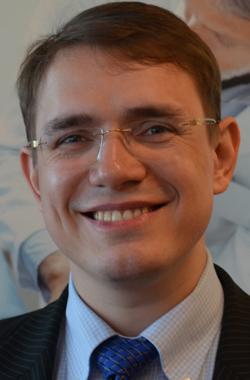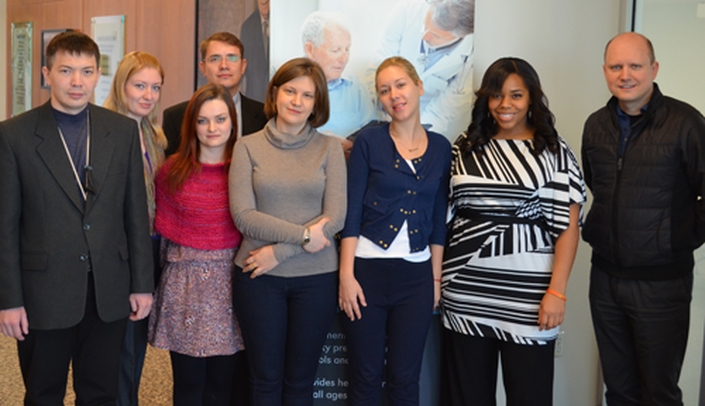For the past week, UNMC has played host to a group of scientists and researchers from Russia.
The visit was sponsored by the Open World Leadership Center, a federal program that strives to stimulate goodwill and collaboration between the people of Russia and the United States.
The visiting doctors are all research scientists in molecular diagnostics of HIV/AIDS, human papilloma virus (HPV) and related infectious diseases.
|
“We’ve had wonderful meetings,” said David Crouse, Ph.D., a member of Friendship Force of Greater Omaha, which hosts the visiting scientists. UNMC leaders who met with the group included Howard Gendelman, M.D., chair of the department of pharmacology and experimental neuroscience; Howard Fox, M.D., Ph.D., professor of pharmacology and experimental neuroscience and senior associate dean for research in the College of Medicine and others.
The Russian group also had time for other attractions — a tour of the governor’s mansion (where they were named honorary Nebraskans), a trip to the Henry Doorly Zoo and shopping at Village Pointe.
Still, they were here for the research.
 |
Ilya Lapovok, Ph.D. |
“The scientific groups that work here conduct their research at the highest possible level — this is what impressed us,” Dr. Lapovok said. “We also were very impressed at how efficient and effective fundraising events can be working with financial sponsors and donors.”
Cross border outreach efforts are important, he added.
“People from different countries harbor many stereotypes that they associate with people from another country,” he said. “In a way, those stereotypes can impede relations and communication between those people.
“Touching upon the American culture, as well as learning the ways of our American colleagues, helps us tremendously to better understand this culture and this country and helps us in our work. And at the same time, it’s a two-way street, because it also enables American colleagues to better understand who we are and the way we do things.”
